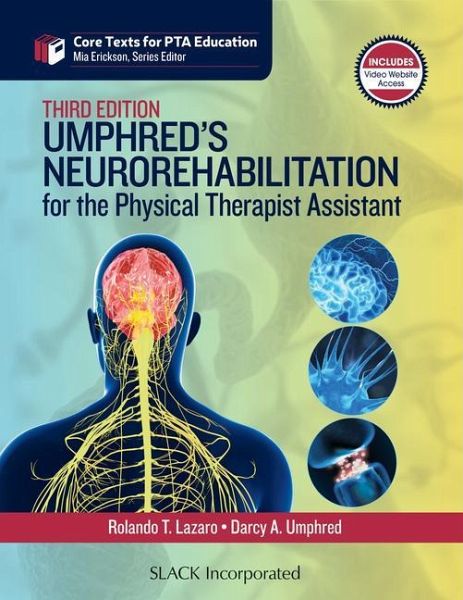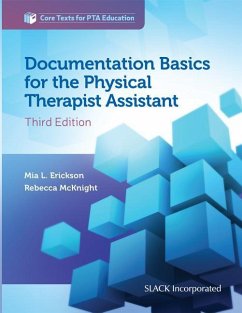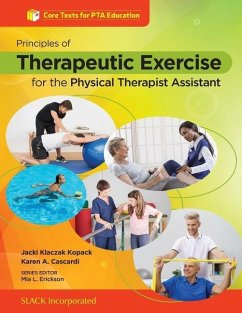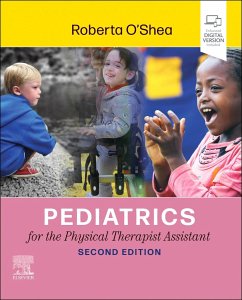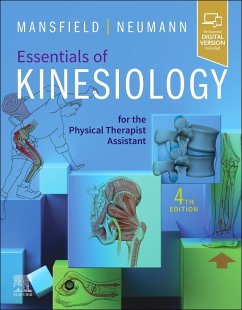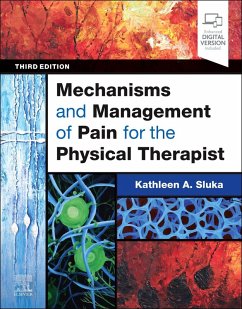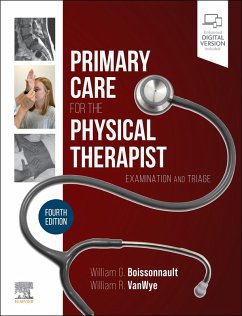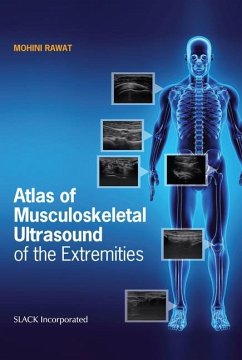Umphred's Neurorehabilitation for the Physical Therapist Assistant
Versandkostenfrei!
Versandfertig in 1-2 Wochen
Weitere Ausgaben:

PAYBACK Punkte
43 °P sammeln!




A comprehensive guide to neurological rehabilitation for physical therapist assistants (PTAs), Umphredâ s Neurorehabilitation for the Physical Therapist Assistant, Third Edition presents contemporary, evidence-based principles and techniques for examination and intervention for individuals with neurological conditions.
Rolando T. Lazaro, PT, PhD, DPT is currently an Associate Professor at Sacramento State University in Sacramento, California. He graduated from Touro University with a PhD in Health Science, from Creighton University with a Postprofessional Doctor of Physical Therapy, from the University of the Pacific with an MS in Physical Therapy, and from the College of Allied Medical Professions, University of the Philippines Manila with a BS in Physical Therapy. Dr. Lazaro has authored research articles and chapters for a variety of textbooks. He became the primary editor of the Seventh Edition of Umphred's Neurological Rehabilitation, which was published in 2019. He is also coeditor of the Seventh Edition of Goodman and Snyder's Differential Diagnosis for Physical Therapists and Associate Editor of the Fourth Edition of Goodman and Fuller's Pathology: Implications for the Physical Therapist. Dr. Lazaro was awarded a Fulbright Senior Scholarship to the Philippines from June to November 2013. Previously, Dr. Lazaro was a professor at Samuel Merritt University in Oakland, California, and assistant professor at the University of the Pacific in Stockton, California. He was also a part-time physical therapist assistant faculty at the Professional Skills Institute in Concord, California. Darcy A. Umphred, PT, PhD, FAPTA graduated from the University of Washington with a BS in Physical Therapy, from Boston University with an MS in Allied Health Education, and from Syracuse University with a PhD in Theories of Learning and Teacher Education in 1978. She has taught in both physical and occupational therapy programs throughout the United States since receiving her MS in 1970. At the time of her retirement, she was professor and chair of the Department of Physical Therapy at the University of the Pacific and played a major role in its evolution to granting a Doctorate of Physical Therapy to its graduates. After retirement, she was made an emeritus professor with all the honors that it brings. Throughout her professional career and throughout the world, she taught courses that combined theories of central nervous system function, movement science, evidence-based practice, and the unique qualities of the learning styles of the patient and clinicians into an integrated approach to analyzing individuals with central nervous system dysfunction creating functional movement problems. Her love of clinical practice and analyzing movement problems has driven her to question the "why's" behind patients' functional restrictions. Similarly, she has studied how our limbic, cognitive, and belief systems affect the interactions between the client and the therapist. She was the primary editor of the textbook Neurological Rehabilitation, for the first 6 editions between 1985 and 2012, which were translated into many different languages throughout the world. She has received numerous awards at the local, state, and national levels within the American Physical Therapy Association and was made a Catherine Worthingham Fellow in 2003. Her respect for the profession of physical therapy and the 2 educated clinicians-the physical therapist and the physical therapist assistant-has been demonstrated by her commitment to the responsibilities and services both professionals play in the delivery of physical therapy services throughout the world. It is her belief that physical therapy can and should play a unique role in the delivery of services for individuals with functional movement problems whether those problems arise from disease, pathology, or from everyday life experiences. Optimal quality of life is defined by each individual, and it is the therapist's role to help that person regain as much of that quality available. Thus, listening to the patients' voice-their beliefs, their true desires, and what will motivate each patient to retain and continue to learn-has become a major focus in her role as a patient and family advocate within the health care delivery system today.
Produktdetails
- Core Texts for PTA Education
- Verlag: SLACK Incorporated
- 3 ed
- Seitenzahl: 458
- Erscheinungstermin: 1. Oktober 2020
- Englisch
- Abmessung: 280mm x 216mm x 25mm
- Gewicht: 1148g
- ISBN-13: 9781630915650
- ISBN-10: 1630915653
- Artikelnr.: 60410044
Herstellerkennzeichnung
Libri GmbH
Europaallee 1
36244 Bad Hersfeld
gpsr@libri.de
Für dieses Produkt wurde noch keine Bewertung abgegeben. Wir würden uns sehr freuen, wenn du die erste Bewertung schreibst!
Eine Bewertung schreiben
Eine Bewertung schreiben
Andere Kunden interessierten sich für




